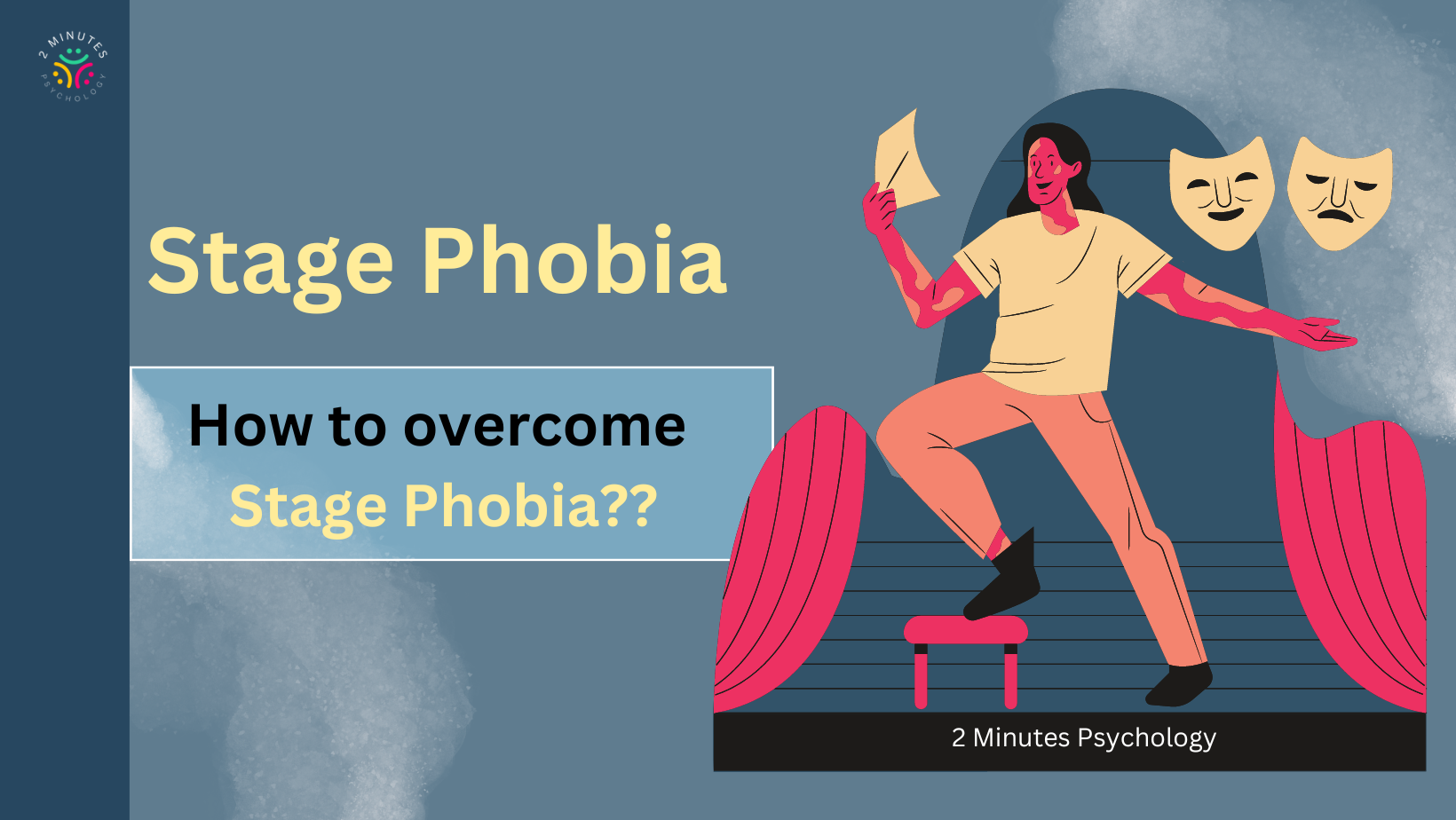
Shattering Stage Phobia: Unleashing Confidence for Remarkable Performances

2 Minutes Psychology
Sep 10, 2025
The spotlight shining brightly, the anticipation building, and all eyes on you as you step onto the stage. But suddenly, your heart races, palms sweat, and your mind goes blank. You're gripped by stage phobia, that all-too-familiar fear of performing in front of others. Don't worry, you're not alone! It's estimated that about 75% of people have experienced some form of performance anxiety or stage fright at least once. But fear not, as we dive into the fascinating world of stage phobia, exploring the neurological, biological, and social factors at play, and uncovering some amazing tricks to help you overcome this common challenge. Get ready to take the stage with confidence and captivate your audience like never before!
Stage phobia, also known as stage fright or performance anxiety, is a type of social anxiety disorder characterized by an excessive and persistent fear of performing or speaking in front of an audience. It can manifest in various settings such as public speaking, giving presentations, performing on stage, or even in everyday situations where an individual feels they are being observed or evaluated.
Here are some factors that can potentially impact the development of stage phobia:
Neurological factors: Neurologically, stage phobia is believed to involve the activation of the body's stress response system, which is controlled by the amygdala, a region in the brain responsible for processing emotions. When faced with a perceived threat, the amygdala triggers the release of stress hormones such as cortisol and adrenaline, leading to physical symptoms such as rapid heartbeat, sweating, trembling, and increased alertness. In individuals with stage phobia, the amygdala may be hypersensitive, leading to an exaggerated fear response in performance situations.
Biological factors: Several biological factors have been implicated in stage phobia, including genetics and neurotransmitter imbalances. Research suggests that there may be a genetic predisposition to developing stage phobia, as it tends to run in families. Additionally, imbalances in certain neurotransmitters, such as serotonin, which regulates mood and anxiety, may contribute to the development of stage phobia.
Social factors: Social factors, such as learned behavior and environmental influences, can also play a role in the development of stage phobia. For example, if an individual has experienced a traumatic or embarrassing event related to performing in front of others, it may lead to the development of stage phobia. Additionally, societal and cultural norms around performance and public speaking can influence an individual's perception of the situation, leading to anxiety and fear of judgment or rejection.
Psychological factors: Psychological factors, including negative self-beliefs, low self-esteem, and perfectionism, can also contribute to stage phobia. Individuals with stage phobia may have high expectations for themselves and fear that they will not meet these expectations, leading to anxiety and avoidance of performance situations.
The good news is that there are effective interventions available, such as cognitive-behavioral therapy, exposure therapy, and medication, that can help manage and overcome stage phobia. It's important to seek support from a qualified mental health professional if you're struggling. Remember, you're not alone, and with the right strategies and support, you can overcome stage phobia and confidently take the stage!
Here are few tips and tricks to overcome stage phobia:
Practice, practice, practice: Preparation is key. Practice your performance or speech multiple times, and rehearse in front of a mirror or with a supportive friend or family member. The more familiar you are with your material, the more confident you will feel on stage.
Use relaxation techniques: Relaxation techniques, such as deep breathing, progressive muscle relaxation, or meditation, can help calm your nerves and reduce anxiety before taking the stage. Incorporate these techniques into your routine before your performance to help you feel more relaxed and focused.
Reframe your thoughts: Pay attention to the thoughts that go through your mind before and during your performance. If you notice negative or anxious thoughts, try to reframe them into more positive and realistic ones. For example, instead of thinking "I'm going to mess up," replace it with "I've prepared well, and I'm capable of doing my best."
Visualize success: Close your eyes and imagine yourself performing confidently and successfully on stage. Visualizing a positive outcome can help boost your confidence and reduce anxiety.
Focus on your audience: Instead of focusing on your own nervousness, shift your attention to your audience. Connect with them, make eye contact, and engage with them. This can help you feel less self-conscious and more connected to your audience.
Use humor: Humor can be a great way to break the tension and ease your nerves. Incorporate humor into your performance, if appropriate, or use it as a coping mechanism to help you relax and feel more at ease.
Practice self-care: Taking care of your physical and mental well-being is important. Get enough sleep, eat well, and engage in regular exercise. Taking care of yourself can help you manage stress and anxiety better.
Seek support: Don't be afraid to reach out for support. Talk to a trusted friend, family member, or a mental health professional about your stage phobia. They can provide encouragement, advice, and strategies to help you overcome your fear. The spotlight shining brightly, the anticipation building, and all eyes on you as you step onto the stage. But suddenly, your heart races, your
Stage phobia or stage fright is a common challenge that many individuals face when performing in front of others. It involves a complex interplay of neurological, biological, social, and psychological factors. However, the good news is that there are effective strategies and tricks that can help you overcome stage phobia and confidently take the stage. By practicing, using relaxation techniques, reframing thoughts, visualizing success, focusing on your audience, incorporating humor, practicing self-care, and seeking support, you can manage and conquer your stage fright. Remember, it's okay to feel nervous, but with the right techniques and support, you can overcome your fear and deliver a captivating performance.
So, embrace the spotlight, take a deep breath, and believe in yourself. You've got the talent, and with these amazing tricks, you can conquer stage phobia and shine on stage like a star! Best of luck on your performance journey!
Community
Share your experience
Let's Meet 2 Minutes Psychology
Aug 28
Remember
Let's Meet 2 Minutes Psychology
Aug 28
Cognitive Behavioral Therapy (CBT) and anxiety coping skills
Let's Meet 2 Minutes Psychology
Aug 28
Anxiety coping skills for teens
Let's Meet 2 Minutes Psychology
Aug 28
Grounding techniques
Let's Meet 2 Minutes Psychology
Aug 28
.png)

